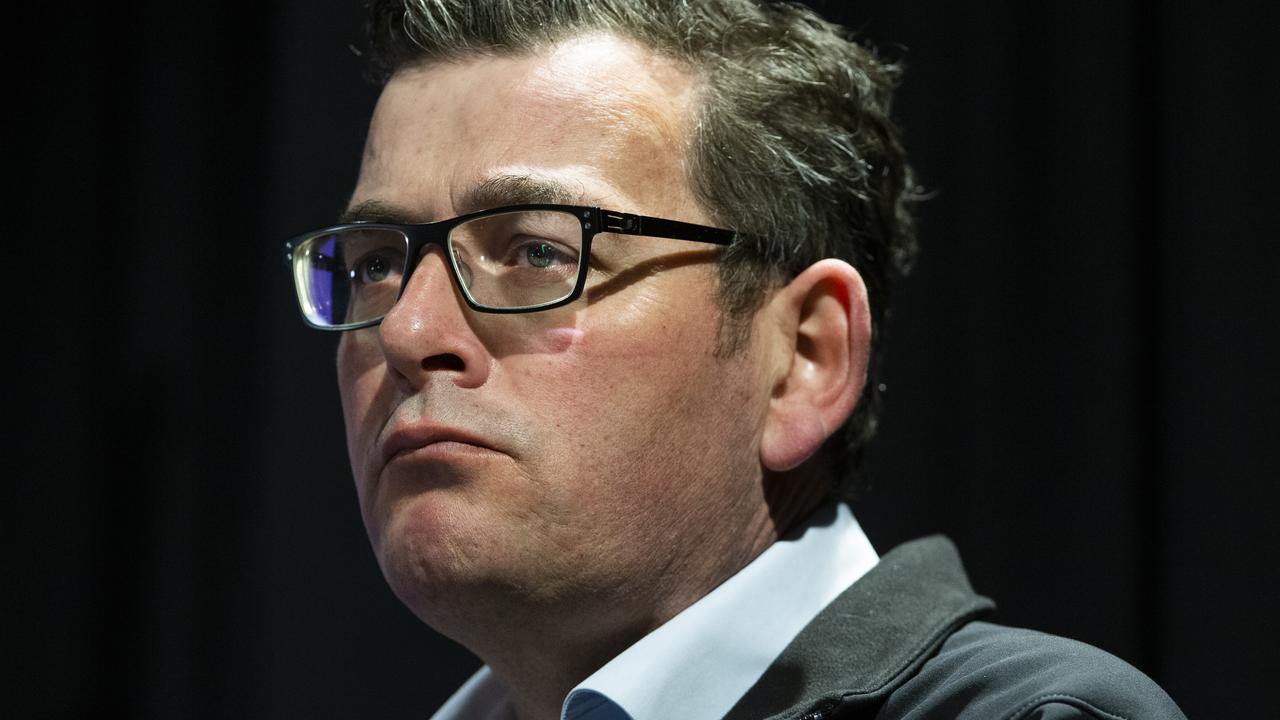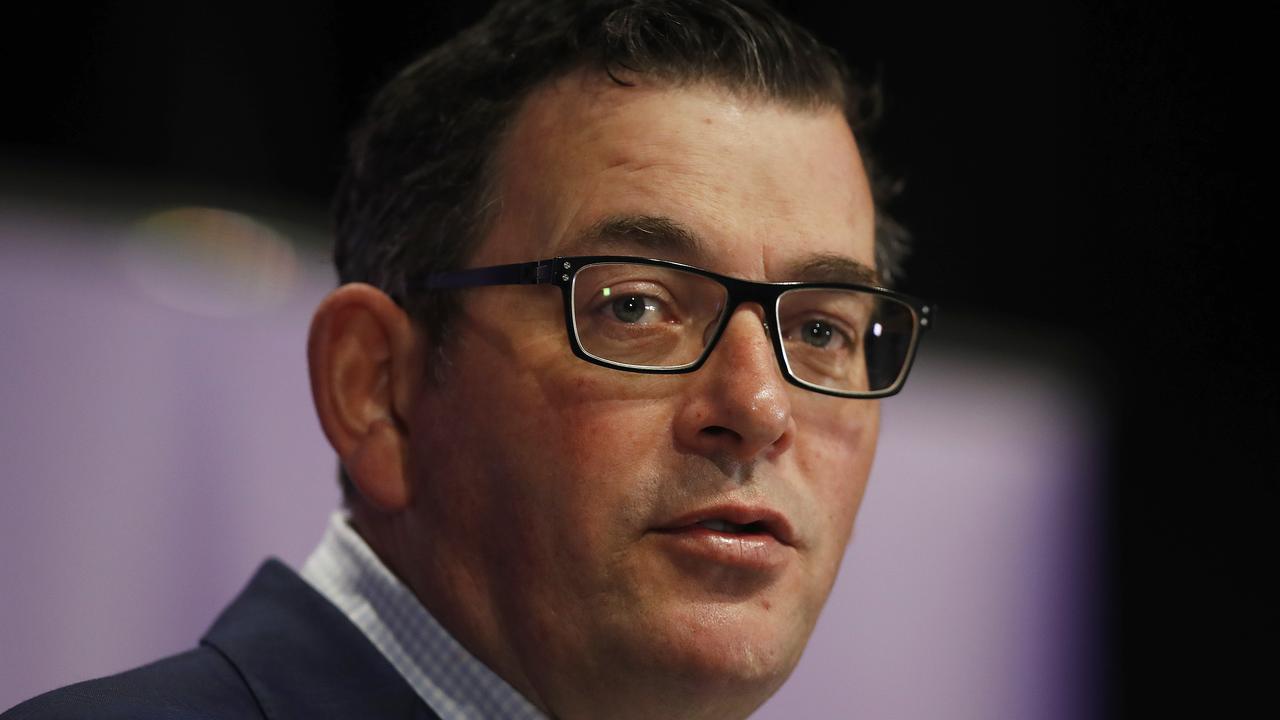James Campbell: Jeremy Corbyn is not the way ahead for Labor
ADOPTING the strategies of UK Labour leader Jeremy Corbyn would be a huge risk for Australian Labor, writes James Campbell.
James Campbell
Don't miss out on the headlines from James Campbell. Followed categories will be added to My News.
MARK BUTLER is a South Australian MP who has been the federal president of the Australian Labor Party since 2015.
A few days ago he gave a speech to the Fabian Society in Victoria — yes, it still exists — in which he said he was sorry to have to report to the comrades that “ours remains a party that gives ordinary members fewer rights than any other labour or social democratic party I can think of”.
Heading into this year’s national conference he said it was time to “grasp the nettle and to give ALP members the range of democratic and participatory rights that members of our sister parties across the world take for granted”.

This would include votes to choose the federal and state parliamentary leaders as well as senate and legislative council positions around the country. Sadly, Butler said, “in some states, those positions remain a last bastion of backroom dealing by self-appointed factional warlords — a bastion that must be cracked open.”
Furthermore the party needs to act to stop these voting rights “being suspended or overridden by factional operatives on state and national executives”. Not only that, apparently “it’s time … to expand the right to participate in Labor ballots beyond full membership to a new category of ‘registered supporter’”.
There followed the usual stuff about decline of Labor as a mass membership party and the corresponding need to recruit more people — the sort of stuff that ALP Lefties always trot out whenever they’ve just come off second best in a factional fight.
POLL PUTS XENOPHON IN KINGMAKER SPOT
Although the speech was delivered more than a week ago, Labor folk I spoke to today were still laughing that such words should have passed the lips of the same Mark Butler who was first elected to the ALP’s national executive in 2000, a national executive that has since three times cancelled local votes to choose candidates for the Legislative Council in Victoria and instead imposed lists of candidates picked by factional heavies.
This, it was also pointed out, is the same Mark Butler who since the 1990s has been at the helm of an arrangement in South Australia called “The Machine”, which has allowed him and the Right’s Don Farrell to carve up ALP preselections there with all the same respect for local sensibilities that Hitler and Stalin showed when they carved up Poland.
Indeed as one Victorian Right-winger joked, even to refer to the way the South Australian ALP chooses its candidates as a “preselection” is a bit of a misnomer. After reading Butler’s speech he’d checked with a colleague in South Australian who confirmed there hadn’t been a local ballot there to choose candidates for at least 20 years.
For all these reasons, along with others, some of which were outlined by Troy Bramston in The Australian on Tuesday, Butler’s speech has been met with nearly universal derision.
But while Bramston mocked Butler’s hypocrisy, he at least gave him credit for correctly diagnosing the Labor Party’s ills, concurring with his warning “that democratising its internal workings, reducing the power of faction and union bosses and expanding membership to be more representative is inexorably linked to winning the next election and governing effectively”.
In fact I would argue that the opposite is the case, as a look at the Liberal Party in Victoria reveals. A decade ago the Libs here democratised their internalised processes. The result has been chaos.
Check out the Facebook pages of all but the laziest Liberal MP and it becomes clear they spend far too much of their time attending useless events to keep branch members happy rather than engaging with actual voters.
Not only that, the growth of democracy has made it easier for a bunch of extreme social conservatives to try to take over the party, an ongoing fight upon which the whole future of the Liberalism in this state hinges.

It was ironic, too, that Butler’s speech came in the same month in which the extreme Left-winger followers of Jeremy Corbyn completed their takeover of the national executive of the British Labour Party, leading to fears of a mass purge of the parliamentary party.
While Butler acknowledged that the orthodox view inside the ALP is the “that ‘reform equals Corbyn equals electoral oblivion”, he suggested this view had been tested by the result of the 2017 UK election, which Corbyn came close to winning.
Which is fair enough, I suppose, but hardly comforting I’d have thought to an Australian Labor Party that has won a majority of seats in the House of Representatives only once in the past 25 years — especially as Corbyn didn’t actually win.
BREXIT’S EU BORDER FEARS: ‘NEVER AGAIN’
Moreover, as federal Labor leader Bill Shorten’s angry populist speech to the National Press Club on Tuesday showed, you don’t need party reform to have Corbynism.
Butler’s answer to those who worry that democratisation would drive the party to the unelectable fringe of Australian politics was to “have more faith in the moderate voice within the ALP to organise better and to present a more compelling narrative and vision than their equivalents in British Labour frankly have done”.
Thanks Mark but I think it would be better for everyone if the ALP doesn’t put this to the test.
James Campbell is national politics editor.



